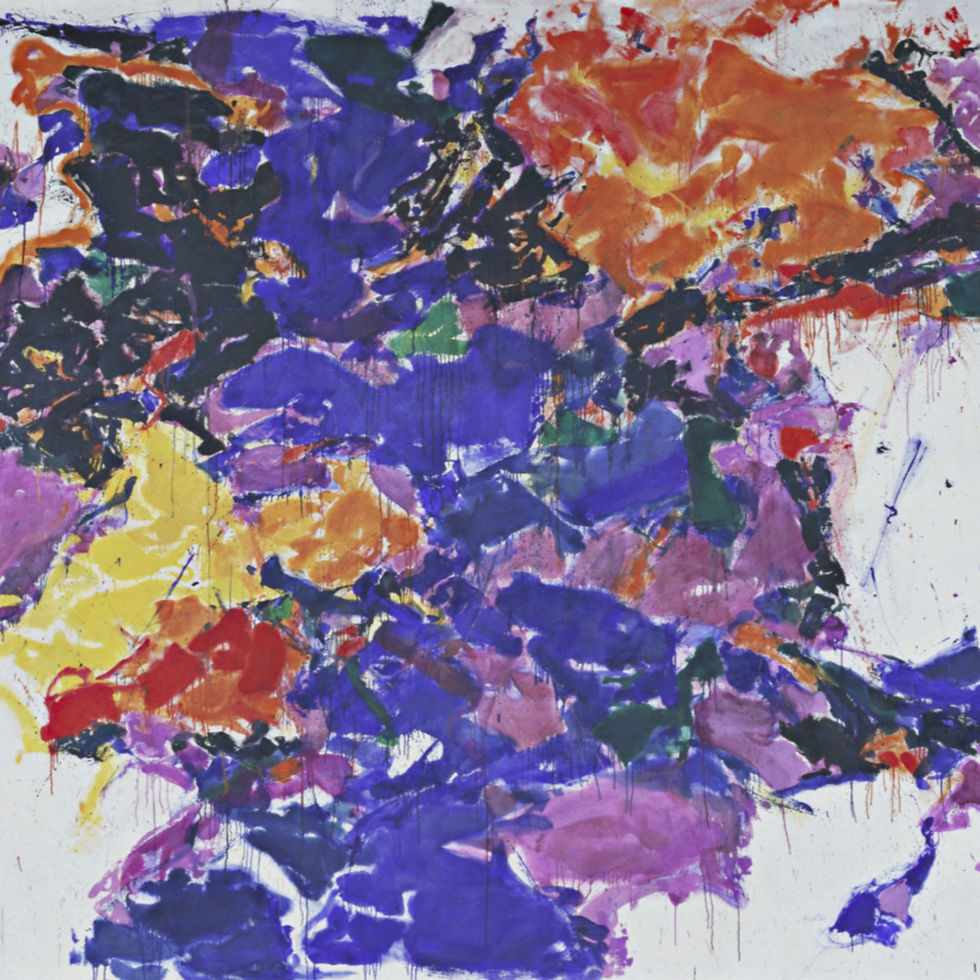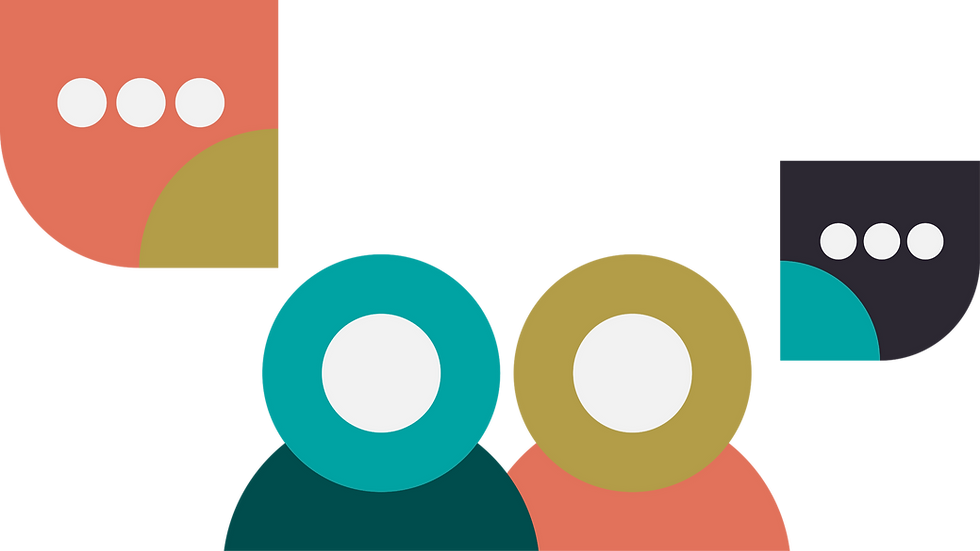What's the Difference Between Needing and Loving?
When we say "I need you," what exactly do we mean? Sometimes it feels like a declaration of deep love, other times like a confession of dependency. The words themselves point to something essential about how we connect with others, yet the line between needing and loving often feels blurry, especially in our most important relationships.
Maybe the difference lies not in whether we need each other, but in how that need operates. Does it expand us or diminish us? Does it make space for the other person to be themselves, or does it require them to be what we need them to be? These questions touch on something fundamental about human connection and what it means to truly care for another person.
Our conversation will explore:
Can we truly love someone if we are afraid to be alone?
What role does independence play in a healthy relationship?
How do we untangle desire from dependence?

What's the Difference Between Needing and Loving?

When we say "I need you," what exactly do we mean? Sometimes it feels like a declaration of deep love, other times like a confession of dependency. The words themselves point to something essential about how we connect with others, yet the line between needing and loving often feels blurry, especially in our most important relationships.
Maybe the difference lies not in whether we need each other, but in how that need operates. Does it expand us or diminish us? Does it make space for the other person to be themselves, or does it require them to be what we need them to be? These questions touch on something fundamental about human connection and what it means to truly care for another person.
Our conversation will explore:
Can we truly love someone if we are afraid to be alone?
What role does independence play in a healthy relationship?
How do we untangle desire from dependence?

When we say "I need you," what exactly do we mean? Sometimes it feels like a declaration of deep love, other times like a confession of dependency. The words themselves point to something essential about how we connect with others, yet the line between needing and loving often feels blurry, especially in our most important relationships.
Maybe the difference lies not in whether we need each other, but in how that need operates. Does it expand us or diminish us? Does it make space for the other person to be themselves, or does it require them to be what we need them to be? These questions touch on something fundamental about human connection and what it means to truly care for another person.
Our conversation will explore:
Can we truly love someone if we are afraid to be alone?
What role does independence play in a healthy relationship?
How do we untangle desire from dependence?
Conversation Catalysts
At Premise, a Conversation Catalyst is a short story, essay, film, or poem that sparks reflection and connection. It’s the shared reference point that grounds each session and opens the door to meaningful and deep conversation.

"The Story of an Hour" by Kate Chopin
"The Moon Shell" and "Argonauta" from Gift from the Sea by Anne Morrow Lindbergh
Preparation: < 1.5 hours
%20copy_edited.png)
We consider what happens when freedom reveals the difference between genuine love and comfortable dependence.
"The Story of an Hour" by Kate Chopin
Chopin's brief but powerful story follows Louise Mallard, who receives news of her husband's death and experiences an unexpected sense of liberation. As she contemplates a future free from the "powerful will bending hers," Louise discovers feelings she never acknowledged about marriage, autonomy, and her own suppressed desires for independence.
_edited.png)
"The Story of an Hour" by Kate Chopin
"The Moon Shell" and "Argonauta" from Gift from the Sea by Anne Morrow Lindbergh
Preparation: < 1.5 hours
We consider what happens when freedom reveals the difference between genuine love and comfortable dependence.
"The Story of an Hour" by Kate Chopin
Chopin's brief but powerful story follows Louise Mallard, who receives news of her husband's death and experiences an unexpected sense of liberation. As she contemplates a future free from the "powerful will bending hers," Louise discovers feelings she never acknowledged about marriage, autonomy, and her own suppressed desires for independence.
Conversation Catalysts
At Premise, a Conversation Catalyst is a short story, essay, film, or poem that sparks reflection and connection. It’s the shared reference point that grounds each session and opens the door to meaningful and deep conversation.
"The Story of an Hour" by Kate Chopin
"The Moon Shell" and "Argonauta" from Gift from the Sea by Anne Morrow Lindbergh

Text Set A
Preparation: < 1.5 hours
Session Description
We consider what happens when freedom reveals the difference between genuine love and comfortable dependence.
"The Story of an Hour" by Kate Chopin
Chopin's brief but powerful story follows Louise Mallard, who receives news of her husband's death and experiences an unexpected sense of liberation. As she contemplates a future free from the "powerful will bending hers," Louise discovers feelings she never acknowledged about marriage, autonomy, and her own suppressed desires for independence.
The story forces readers to examine the nature of love within traditional marriage structures. Chopin asks: Can love exist alongside the loss of individual identity? What is the difference between loving someone and being subsumed by them?
"The Moon Shell" and "Argonauta" from Gift from the Sea by Anne Morrow Lindbergh
Lindbergh uses shells found on the beach as metaphors for different stages of a woman's life and relationships. In "The Moon Shell," she reflects on the necessity of solitude for personal growth, while "Argonauta" explores how couples can maintain individual identity within committed partnership. She argues that healthy relationships require periods of separation and independence.
Lindbergh's meditations reveal how solitude strengthens rather than threatens genuine love. She asks: How does time alone prepare us to love more fully? Can we truly give ourselves to another if we don't first know who we are independently?
Text Set A
Preparation: < 1.5 hours
Session Description
We consider what happens when freedom reveals the difference between genuine love and comfortable dependence.
"The Story of an Hour" by Kate Chopin
Chopin's brief but powerful story follows Louise Mallard, who receives news of her husband's death and experiences an unexpected sense of liberation. As she contemplates a future free from the "powerful will bending hers," Louise discovers feelings she never acknowledged about marriage, autonomy, and her own suppressed desires for independence.
The story forces readers to examine the nature of love within traditional marriage structures. Chopin asks: Can love exist alongside the loss of individual identity? What is the difference between loving someone and being subsumed by them?
"The Moon Shell" and "Argonauta" from Gift from the Sea by Anne Morrow Lindbergh
Lindbergh uses shells found on the beach as metaphors for different stages of a woman's life and relationships. In "The Moon Shell," she reflects on the necessity of solitude for personal growth, while "Argonauta" explores how couples can maintain individual identity within committed partnership. She argues that healthy relationships require periods of separation and independence.
Lindbergh's meditations reveal how solitude strengthens rather than threatens genuine love. She asks: How does time alone prepare us to love more fully? Can we truly give ourselves to another if we don't first know who we are independently?
Conversation Catalysts
At Premise, a Conversation Catalyst is a short story, essay, film, or poem that sparks reflection and connection. It’s the shared reference point that grounds each session and opens the door to meaningful and deep conversation.
Letters to a Young Poet by Rainer Maria Rilke (selected letters)
"On Self-Respect" by Joan Didion

Text Set B
Preparation: < 1.5 hours
Session Description
We examine how solitude and self-knowledge create the foundation for authentic relationships.
Letters to a Young Poet by Rainer Maria Rilke (Selected Letters)
In his correspondence with a young aspiring poet, Rilke offers profound insights about solitude, love, and personal development. He argues that we must learn to be alone with ourselves before we can truly connect with others, and that love should enhance rather than complete us. Rilke suggests that most people rush into relationships to escape the difficulty of being alone.
Rilke's wisdom reveals how cultivating an inner life prepares us for genuine intimacy. He asks: What is the difference between loving someone and using them to avoid loneliness? How does learning to be alone change the quality of our connections with others?
"On Self-Respect" by Joan Didion
Didion's classic essay explores the relationship between self-respect and the ability to form healthy relationships with others. She argues that people who lack self-respect often seek validation through others, creating relationships based on need rather than genuine connection. Self-respect, she suggests, is the foundation for both solitude and authentic intimacy.
The essay illuminates how our relationship with ourselves shapes all other relationships. Didion asks: How does self-respect change the way we approach love and friendship? What happens when we stop looking to others to provide what we can only give ourselves?
Text Set A
Preparation: < 1.5 hours
Session Description
We consider what happens when freedom reveals the difference between genuine love and comfortable dependence.
"The Story of an Hour" by Kate Chopin
Chopin's brief but powerful story follows Louise Mallard, who receives news of her husband's death and experiences an unexpected sense of liberation. As she contemplates a future free from the "powerful will bending hers," Louise discovers feelings she never acknowledged about marriage, autonomy, and her own suppressed desires for independence.
The story forces readers to examine the nature of love within traditional marriage structures. Chopin asks: Can love exist alongside the loss of individual identity? What is the difference between loving someone and being subsumed by them?
"The Moon Shell" and "Argonauta" from Gift from the Sea by Anne Morrow Lindbergh
Lindbergh uses shells found on the beach as metaphors for different stages of a woman's life and relationships. In "The Moon Shell," she reflects on the necessity of solitude for personal growth, while "Argonauta" explores how couples can maintain individual identity within committed partnership. She argues that healthy relationships require periods of separation and independence.
Lindbergh's meditations reveal how solitude strengthens rather than threatens genuine love. She asks: How does time alone prepare us to love more fully? Can we truly give ourselves to another if we don't first know who we are independently?
